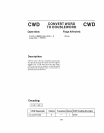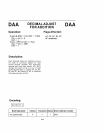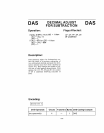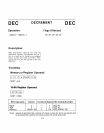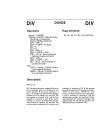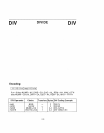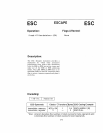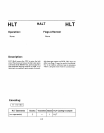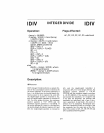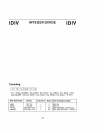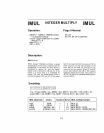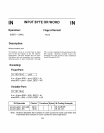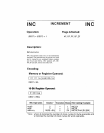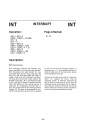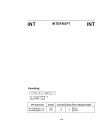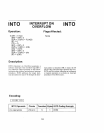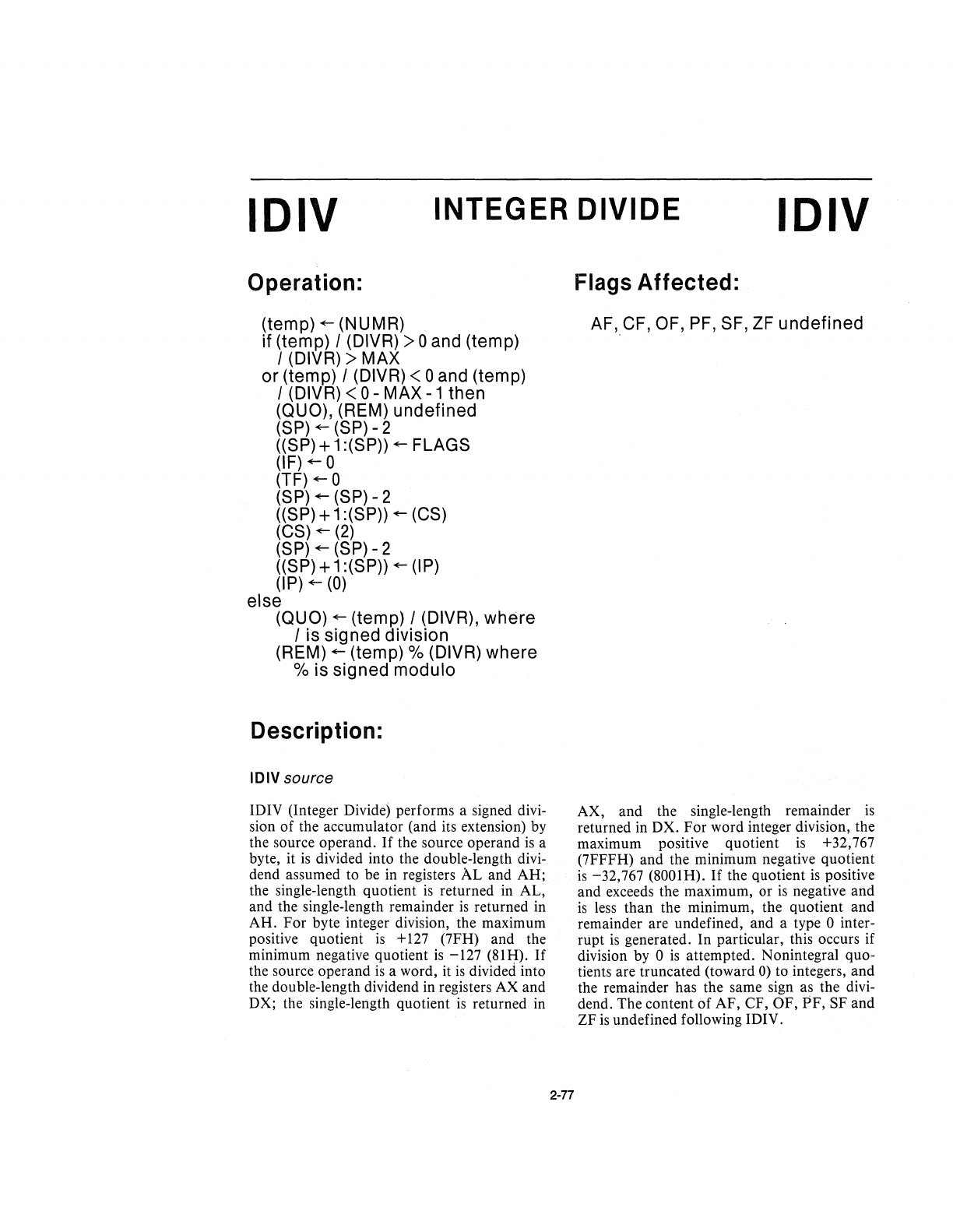
IDIV
INTEGER
DIVIDE
IDIV
Operation:
(temp) - (NUMR)
if (temp)
I (DIVR) > 0 and (temp)
I (DIVR) > MAX
or
(temp) I (DIVR) < 0 and (temp)
I (DIVR) < 0 - MAX -1 then
(QUO), (REM)
undefined
(SP) - (SP) - 2
((SP) + 1 :(SP)) - FLAGS
(IF) -
0
(TF)
- 0
(SP) - (SP) - 2
((SP) + 1 :(SP)) - (CS)
(CS) -
(2)
(SP) - (SP) - 2
((SP) + 1 :(SP)) - (IP)
(lP) -
(0)
else
(QUO) - (temp) I (DIVR),
where
I is
signed
division
(REM)
- (temp) % (DIVR)
where
%
is
signed
modulo
Description:
IDIV
source
IDIV (Integer Divide) performs a signed divi-
sion of the accumulator (and its extension) by
the source operand.
If
the source operand
is
a
byte, it
is
divided into the double-length divi-
dend assumed to be in registers AL and AH;
the single-length quotient
is
returned in AL,
and the single-length remainder
is
returned in
AH.
For
byte integer division, the maximum
positive quotient
is
+127 (7FH) and the
minimum negative quotient
is
-127
(S1H).
If
the source operand
is
a word, it
is
divided into
the double-length dividend in registers AX and
DX; the single-length quotient
is
returned in
2-77
Flags Affected:
AF,.CF, OF, PF, SF,
ZF
undefined
AX, and the single-length remainder
is
returned in DX. For word integer division, the
maximum positive quotient
is
+32,767
(7FFFH) and the minimum negative quotient
is
-32,767 (S001H).
If
the quotient
is
positive
and exceeds the maximum, or
is
negative and
is
less
than the minimum, the quotient and
remainder are undefined, and a
type 0 inter-
rupt
is
generated. In particular, this occurs if
division by
0
is
attempted. Nonintegral quo-
tients are truncated (toward
0)
to integers, and
the remainder has the same sign as the divi-
dend. The content of AF, CF,
OF, PF, SF and
ZF
is
undefined following IDIV.



